Minority Soldiers Fighting in World War I
DEREK MILLER
Published in 2018 by Cavendish Square Publishing, LLC
243 5th Avenue, Suite 136, New York, NY 10016
Copyright 2018 by Cavendish Square Publishing, LLC
First Edition
No part of this publication may be reproduced, stored in a retrieval system, or transmitted in any form or by any meanselectronic, mechanical, photocopying, recording, or otherwisewithout the prior permission of the copyright owner. Request for permission should be addressed to Permissions, Cavendish Square Publishing, 243 5th Avenue, Suite 136, New York, NY 10016. Tel (877) 980-4450; fax (877) 980-4454.
Website: cavendishsq.com
This publication represents the opinions and views of the author based on his or her personal experience, knowledge, and research. The information in this book serves as a general guide only. The author and publisher have used their best efforts in preparing this book and disclaim liability rising directly or indirectly from the use and application of this book.
CPSIA Compliance Information: Batch #CS17CSQ
All websites were available and accurate when this book was sent to press.
Library of Congress Cataloging-in-Publication Data
Names: Miller, Derek.
Title: Minority soldiers fighting in World War I / Derek Miller.
Description: New York : Cavendish Square, 2018. | Series: Fighting for their country: minorities at war | Includes index.
Identifiers: ISBN 9781502626639 (library bound) | ISBN 9781502626578 (ebook)
Subjects: LCSH: World War, 1914-1918--History--Juvenile literature. | United States. Army--African American troops--History--20th century--Juvenile literature. | World War, 1914-1918--Participation, African American--Juvenile literature. | African American soldiers--History--20th century--Juvenile literature.
Classification: LCC D522.7 M52 2018 | DDC 940.4--dc23
Editorial Director: David McNamara
Editor: Caitlyn Miller
Copy Editor: Alex Tessman
Associate Art Director: Amy Greenan
Designer: Stephanie Flecha
Production Coordinator: Karol Szymczuk
Photo Research: J8 Media
The photographs in this book are used by permission and through the courtesy of:
Cover Everett Sgt. Bernardo Fuller/U.S. Army Photo.
Printed in the United States of America
Archduke Franz Ferdinand
 INTRODUCTION
INTRODUCTION
The World Goes to War
O n a hot, sunny day in the summer of 1918, Archduke Franz Ferdinand of the Austro-Hungarian Empire was riding in a car alongside his wife Sophie, the Duchess of Hohenburg. With all the pomp of European royalty, the Archduke wore a military uniform with a magnificently plumed hat and his wife was in an extravagant white dress. The couple were in the small city of Sarajevo so that the Archduke could pay the local officials a visit and observe military maneuvers, but the visit had not gone as planned. In the morning, the couple were driving in a motorcade through throngs of onlookers when would-be assassins threw a bomb at the open-top car they were riding in. The Archduke deflected it with his hand, and it exploded in the surrounding crowd. The bomb wounded many bystanders but left the Archduke and his wife unharmed. The perpetrators had been caught, and the couple continued their official visit of the city.
That very same afternoon, his motorcade was once again driving through the streets of Sarajevo. The driver of their car was told to take a different route home as a security precaution. However, in a moment that changed the history of the world, the driver forgot this instruction and turned back into the heart of the city. He quickly realized his mistake, brought his car to a stop, and began reversing. But it was too late. Just a few feet away, Gavrilo Princip, a twenty-year-old nationalist, was lying in wait to assassinate the Archduke. He pulled out a pistol and shot twice, hitting the Archduke in his neck and the Duchess in her abdomen. Minutes later, they were both dead, and the assassin was in custody. One month later, the great powers of Europe went to war because of the events of that day.
World War I had begun. It would last four years. By the end, more than ten million people would die in the violence and another five million would starve to death from wartime famine. The world would never be the same: technology, once seen as the great hope of mankind, would forever be associated with poison gas, barbed wire, and machine gun fire that cut down entire generations of men. Political change would sweep across the world as Russia fell to communist forces, and the Austro-Hungarian Empire would be broken apart by the victorious powers. Ultimately, called The War to End All Wars and the Great War, World War I would in fact set the stage for World War II and the Cold War to claim many more lives throughout the rest of the century.
At the beginning of the Great War, the United States was neutral. Its people and government saw little to gain by entering the deadly conflict raging on the other side of the Atlantic Ocean. However, this gradually changed as Germany began sinking ships of all kinds, including American ones, in a desperate attempt to disrupt British trade. The United States declared war on Germany almost three years after World War I began. While the United States entered the war late, it provided a critical influx of manpower at a turning point in the conflict. The countries of Europe were utterly exhausted after three years of fighting: most men of fighting age were already dead or wounded and unable to fight. Germany had begun a last-ditch assault on France, hoping to finally end the war, when American soldiers started to arrive at the front to bolster the French defenses. With the aid of the American soldiers, the German offensive was defeated, and any hope for German victory came to an end.
More than a million American soldiers would go to Europe to support their French and British allies during World War I. Despite systematic racism and discrimination at home, many African Americans and Hispanics answered their countrys call to service, and tens of thousands would fight in the nightmarish trenches of the Western Front . Minority soldiers were an important part of the war efforts both behind the front lines and in the trenches, and many individual minority soldiers distinguished themselves with their bravery. Two African American soldiers and one Hispanic soldier won the Medal of Honor the highest military decoration of the United States military. Nevertheless, many returning veterans faced abuse because of their race when they returned home. The oppressive system of racial segregation remained in the United States, and hundreds of African Americansincluding veteranswere lynched in the Red Summer of 1919, the year after the war ended.

Even waiting rooms in the United States were segregated at the beginning of the twentieth century.


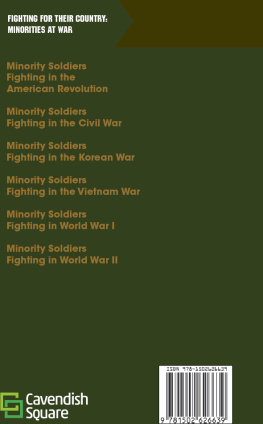




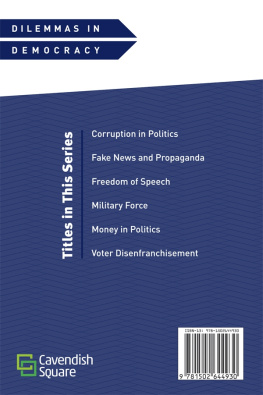
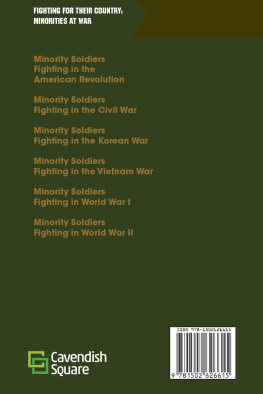
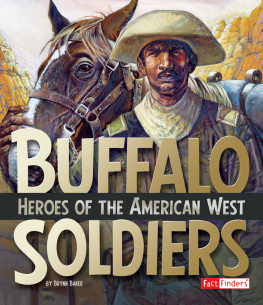
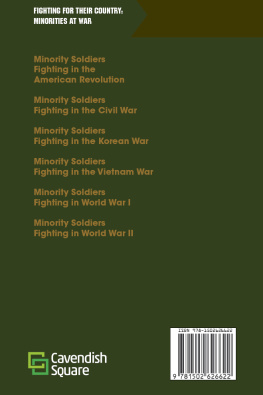

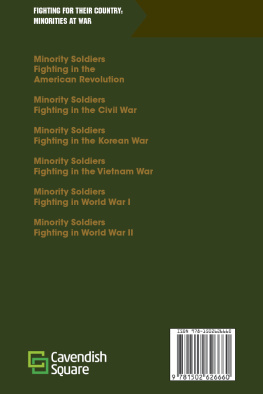
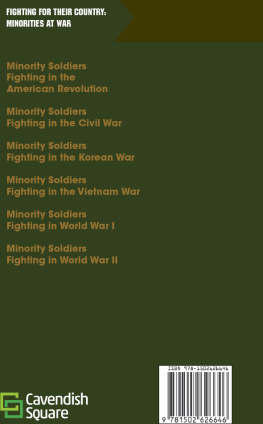

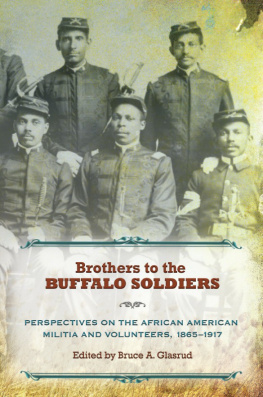

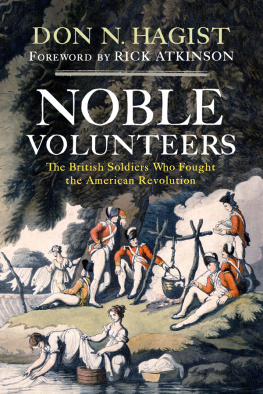





 INTRODUCTION
INTRODUCTION